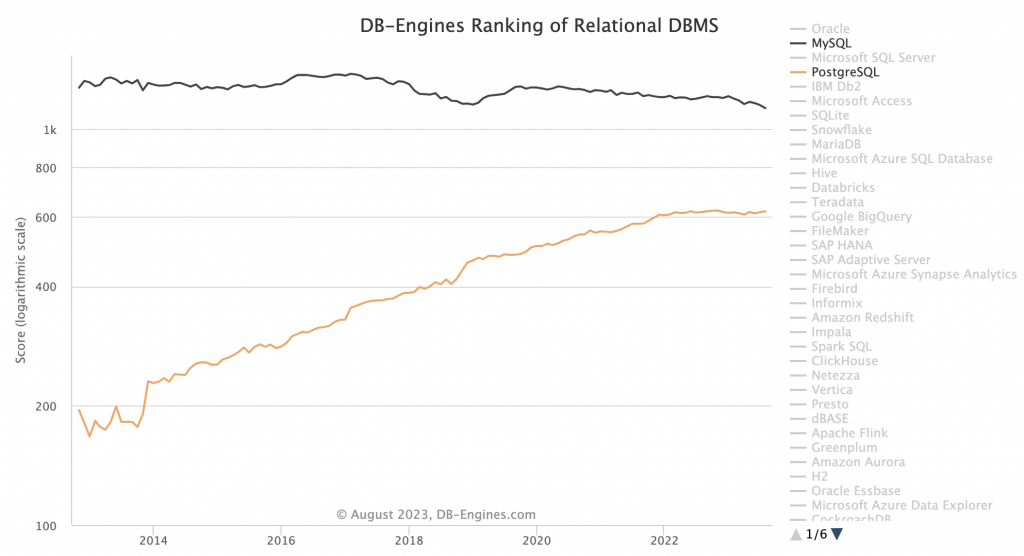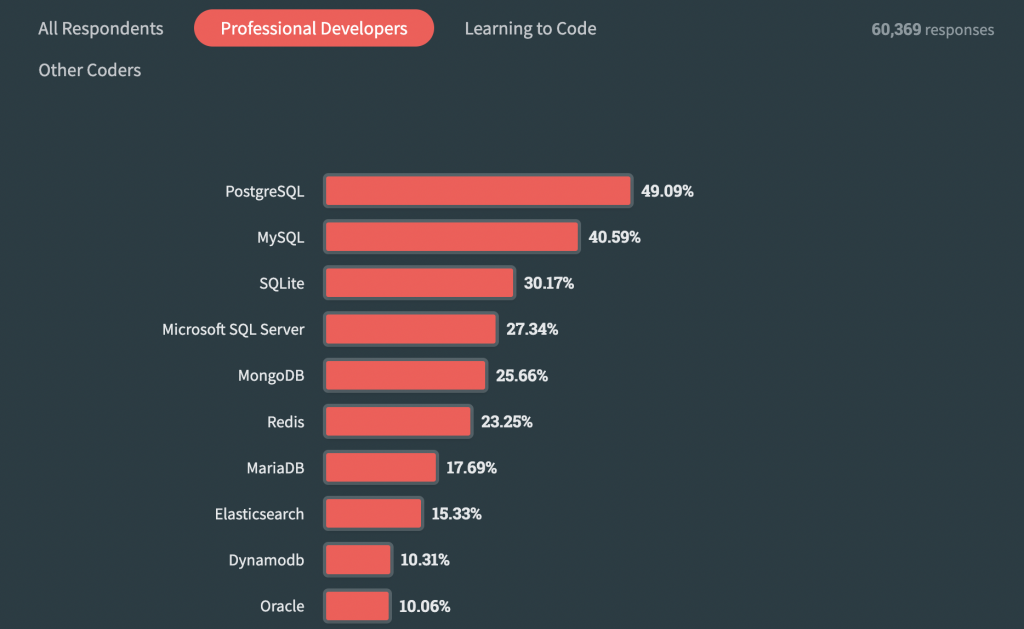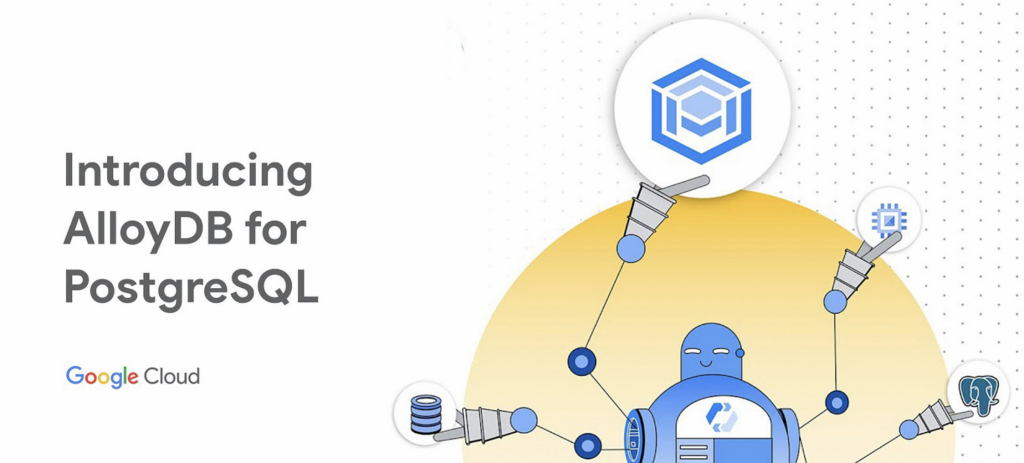This post's content
This is not a "which database is the best in 2023" article. I don't think that's a simple question to answer.
In this article, we'll take a look at different stats and signals that indicate that PostgreSQL is gaining significant popularity, and is taking the lead from other relational databases such as MySQL.
DB ranking in the last 10 years
Looking at the last 10 years in db-engines, it's clear that PostgreSQL is on the rise, while MySQL is stagnating, or even in slight decline. PostgreSQL is gaining popularity among both startups and large enterprises.

PostgreSQL crowned by StackOverflow Survey in 2023
PostgreSQL is the most used database by both professional developers, and those learning to code (students). The latter means that it's gaining popularity among new developers, who will be the ones who will shape the future of the enterprises they'll be in, meaning PostgreSQL is here to stay.

Cloud vendors are going in a PostgreSQL-first approach
Looking at offerings such as Google's AlloyDB, which is a new fully managed PostgreSQL-compatible database service, we can see a trend of large cloud vendors creating customized databases based on PostgreSQL.

Database migrations are tailored to PostgreSQL
Cloud vendors such as AWS are directing customers to migrate to PostgreSQL, exclusively.
AWS released Babelfish, which is in practice a middleware between SQL Server query syntax to PostgreSQL. It allows companies with SQL Server workloads to quickly migrate to Aurora PostgreSQL, without having to modify their queries, stored procedures and their application code.
As previously stated, this was released exclusively for PostgreSQL, while not supported for other databases, which shows that AWS is putting their chips on companies migrating to PostgreSQL.

Custom databases are built on top of PostgreSQL
Databases for specific needs, such as time series databases, are built on top of PostgreSQL. It shows that PostgreSQL has an internal engine that can be trusted to build other technologies on top of, and a user base that will be happy to get the benefits of PostgreSQL, with the extra edge of a tailor-made database.
A good example of such a database is TimescaleDB
Your thoughts?
I'm sure this is a controversial matter, so I would love to hear your thoughts in the comments.



